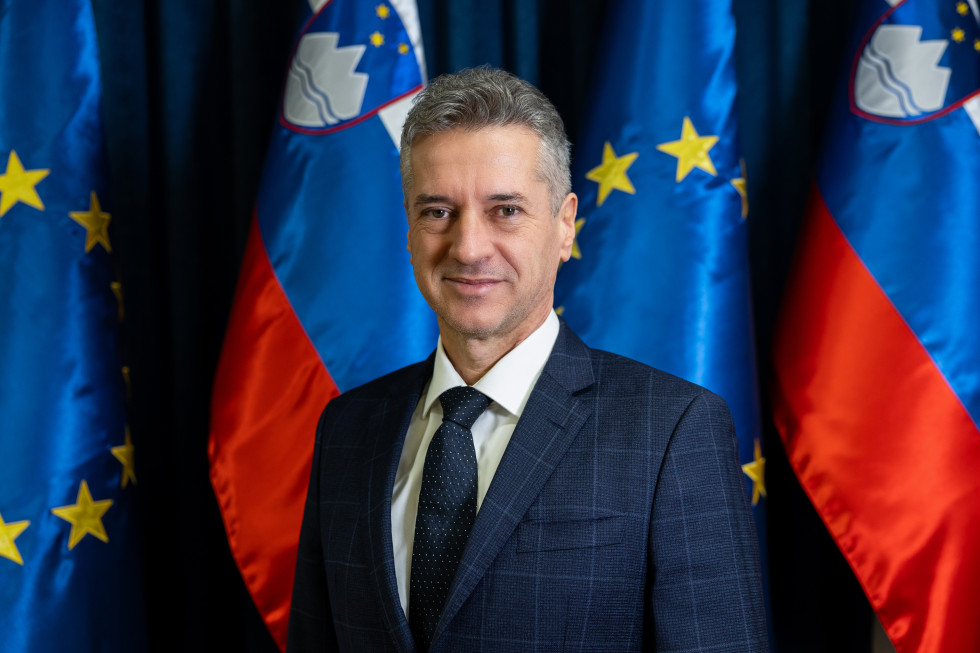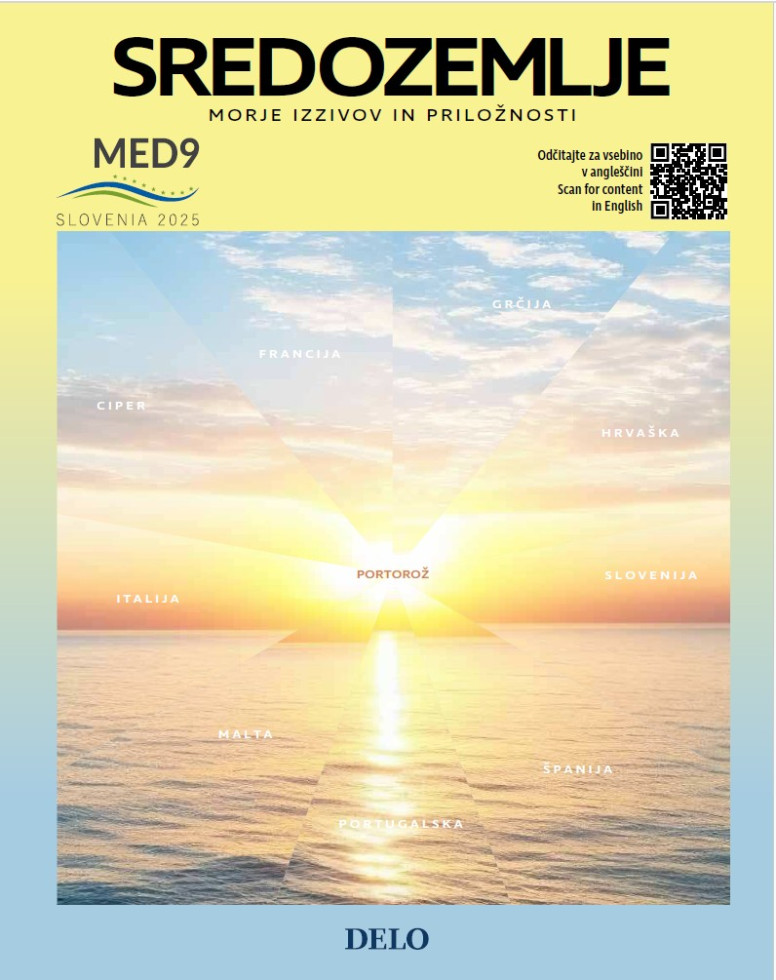The Mediterranean: A Sea of Challenges and Opportunities
MED9 leaders in Portorož on the challenges facing Europe and the Mediterranean
Dr Robert Golob, Prime Minister of the Republic of Slovenia
In mid-October, one of the largest international events organised in Slovenia in recent decades will take place on the Slovenian coast. At the meeting in Portorož, the leaders of the nine EU Member States forming the MED9 group, European Commission President Ursula von der Leyen and the guest of honour King Abdullah II of Jordan will discuss current European challenges, with a special focus on the Mediterranean.
This focus is anticipated. The informal MED9 group, chaired by Slovenia for the first time this year, brings together eight Mediterranean EU Member States – Cyprus, Greece, Italy, Croatia, Slovenia, Malta, France and Spain – and Portugal, which is not a Mediterranean country but shares the problems and challenges faced by this beautiful, sun-drenched part of the Old Continent.
And there are quite a few of them. Starting with the fact that Southern Europe is one of the regions that are most exposed to the effects of climate change. From the extensive wildfires that swept across the Iberian Peninsula and other parts of the Mediterranean this summer – and three years ago also in the Slovenian Karst region – to the destructive winds, violent storms and devastating floods that struck both sides of the Mediterranean Sea, and, unfortunately, also Slovenia in August 2023. Comprehensive and effective adaptation to climate change at various levels, including in agriculture, and thus strengthening security and resilience, is of exceptional importance for this part of our continent.
This group of large and small countries, which are home to almost half of the European Union's population, is also facing issues relating to transport and energy connectivity due to its geographical characteristics. This fact, combined with significant demographic, social, environmental and other challenges, has left its mark on the economy. Therefore, greater attention must be paid to this area in the future. However, the Mediterranean also has its advantages and untapped opportunities. Thanks to its favourable climate, natural beauty and exceptional hospitality, the European Union attracts large numbers of tourists from all over the world, particularly in the summer months. In the coming years, the European Union could significantly reduce its energy dependency through a strategic approach and intensive investments, particularly in the decarbonisation of industry and renewable energy sources, not only in the countries of the northern Mediterranean but also in those of the southern Mediterranean. In the long term, this would also help bring down energy prices, which European companies urgently need to strengthen competitiveness. This is particularly true for those striving to close the innovation gap in areas such as artificial intelligence and other advanced technologies.
The Mediterranean region also has the knowledge and experience needed to make better use of these opportunities. For this purpose, it would be sensible to connect the university communities in the region – of which there are many on both sides of the Mediterranean Sea – and strengthen the exchange of knowledge, skilled personnel and good practices. It is worth noting that both Mario Draghi, author of the influential report on the competitiveness of the European Union, and Enrico Letta, author of the report on the future of the EU's internal market to mention just two contemporary figures, come from this part of Europe.
These topics, in one way or another, are also being addressed during Slovenia's presidency of the MED9 group. Due to their current significance and importance for Slovenia's citizens, it is appropriate that they are discussed at the MED9 summit on 20 October this year in Portorož. I am confident that together with my colleagues Meloni, Macron, Sanchez, Mitsotakis, Christodoulides, Plenković, Montenegro and Abela, as well as our esteemed friend, European Commission President Ursula von der Leyen, we will have an open and productive discussion on strengthening the competitiveness of the European Union and the need for joint European investments in strategic areas, which will also benefit the countries of Southern Europe. The drastic changes in the international community witnessed in recent years call for a joint, decisive and well-considered response.
But the fact remains that it is difficult to discuss the potential and progress of the Mediterranean while the Palestinian population has been living under Israeli occupation for decades, deprived of basic rights and with international norms being violated. The events in Gaza following the terrorist attack by Hamas on 7 October 2023 have pushed this part of the Middle East into an even deeper crisis.
Due to their proximity and close ties to the countries of the Southern Neighbourhood, the Mediterranean EU Member States have an even more important role to play within the European Union in finding a solution to the Middle East question. Given the difficulty of achieving unity in Brussels, we will focus on what we, as EU Member States, can do to achieve peace, improve the situation of the Palestinian people, and uphold the principles and values of the international community, which have been completely disregarded in the case of Palestine. The views and experiences of our esteemed guest and dear friend, King Abdullah II of Jordan, who kindly accepted my invitation, will be of great value in helping us understand the current situation and in our search for lasting, common solutions.
The summit in Portorož will therefore be an excellent opportunity to align the positions of many European leaders on key regional and global challenges ahead of the October European Council meeting, which will take place just a few days after our gathering. It will be an opportunity for the first exchange of views on the proposal for the EU's future Multiannual Financial Framework and on the perspectives and initiatives highlighted by the President of the European Commission in her annual State of the Union address in mid-September. And, of course, for a critical reflection on the opportunities this presents for greater resilience, competitiveness and prosperity for the people of this part of Europe.
If the Mediterranean was once considered the centre of the then known world, then in mid-October this year, Portorož will, in a sense, become the centre of the Mediterranean for a day or two. This will also further strengthen Slovenia's position in the international community – not only as a part of the Alpine and Central European region, but also as a Mediterranean country that persistently strives for stability, progress and sustainable development in the world we live in.




